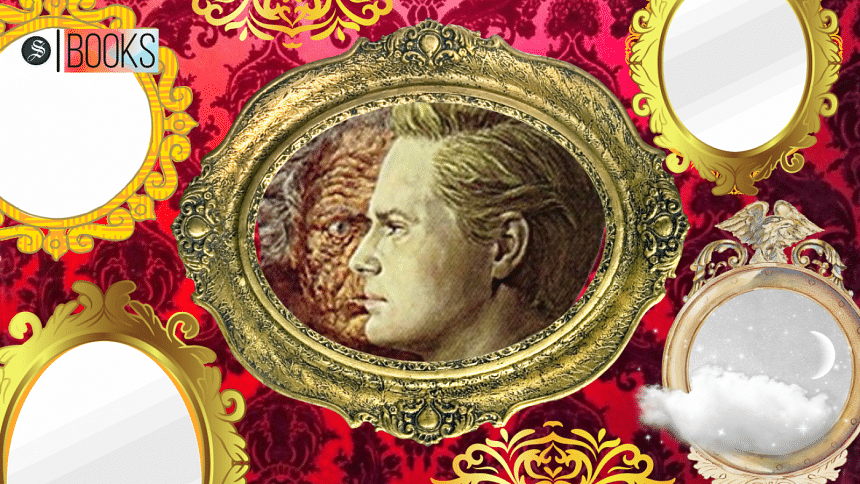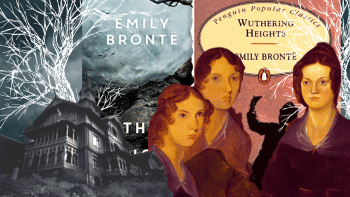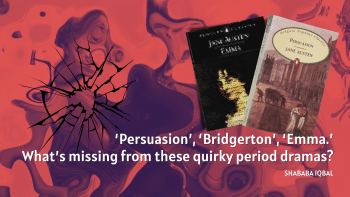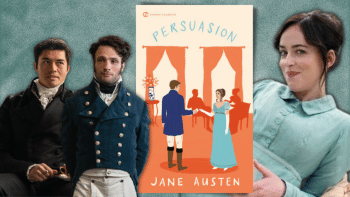How ‘The Picture of Dorian Gray’ mirrors the social media age

In the dying years of the 19th century, a handful of novels appeared whose characters are familiar all over the world: Dracula, the vampire; Dr Jekyll and his evil second self, Mr Hyde; Sherlock Holmes the detective; and Dorian Gray, the beautiful young man whose picture grows old and ugly in his place.
In my third year as an English Literature undergraduate student, I was delighted to see that my professor had included in the syllabus a novel that I had always wanted to read but had not gotten around to—Oscar Wilde's The Picture of Dorian Gray (1890).
Very quickly, I fell in love with Wilde's beautifully poised, rich, and subtle writing, which contains images that have the rare ability to immerse one fully in the sights, sounds, and smells of the world being described. Today marks the 168th birth anniversary of this wordsmith.
To me, Wilde's novel articulates the deepest anxieties of the late Victorians and continues to offer us ways to interpret our own experiences.
Beauty is skin-deep in Dorian's circle of friends. He is welcomed and adored because of his beautiful appearance and even when his sins ruin lives, he always has a certain power because of his attractiveness. Dorian is at his peak when he is unaware of his own beauty, but when conscious of it, his life becomes about surface and appearance. His taste for fashion grows; he loves tapestries and jewels, very flat, decorative objects.
The novel revolves around the portrait of Dorian but this is just one of the damaging surfaces that Wilde depicts. Characters' identities and fates are entirely decided by their outward appearance. The owner of Sybil Vane's theatre is reduced to a collection of Jewish features and hideous mannerisms, as is his theatre reduced to its shabby decor. In turn it is all redeemed by the beautiful face of Sybil, who herself is putting on a costume. Veils of societal roles and costumes are worn by everybody in the novel and are made more fatal by the way the characters describe and stereotype each other, never letting each other escape from their narrow identities and appearances. To Lord Henry, who knows all about his sinful behaviour, Dorian remains the beautiful boy that he met in Basil's studio; appearance always wins out.
Having been warned by Lord Henry that his youthful looks will fade, and having seen the supernaturally beautiful portrait that Basil has finished, Dorian becomes overwhelmed by the wish to stay young forever.
"If it were only the other way! If it were I who was always young, and the picture that was to grow old!"he says. His sudden desperation does not fit the innocent, charming image of Dorian we initially see in the novel. Wilde uses this dramatic transformation to show that the threat of mortality can have an extreme effect on people.
Dorian is so astonished by the portrait of himself that he becomes jealous of it. Of the fact that it will remain the same while he himself ages and grows less attractive. While this might seem like a strange reaction, it demonstrates the importance of art, surfaces, and appearance to Dorian and the other characters. As the novel shows, this is a dangerous view, as investing too much in appearances leads to the corruption of one's personality.
Dorian begins to think morosely about his lost innocence and wishes that he had received punishment for his sins: "His beauty had been to him but a mask, his youth but a mockery. What was youth at best? A green, unripe time, a time of shallow moods and sickly thoughts."
He resents his youthful beauty itself, associating youth with shallowness. He understands the danger that comes with an unchecked desire for immortality, beauty, and pleasure. He characterises youth as a repulsive state, indicating through the mention of "green" and "sickly thoughts" that it is even a kind of illness. Indeed, the problem lies in the obsession with appearances, which are inherently hollow and misleading. Dorian's beauty was a "mask," revealing nothing about his true self, and only terrible consequences have come from living according to "shallow moods."
The Picture of Dorian Gray is a didactic novel with a clear moral message for its readers. This message stands in contrast to the views of the main didactic character, Lord Henry. Dorian is able to see through Lord Henry's corrupting influence and understand the mistakes he has made, but he cannot survive this realisation; the novel ends with the irony that Dorian's desire for immortality results in his death.
There are undoubtedly some facets of modern-day society which are closely tied to the book's themes. Today, glamour magazines and adverts bombard us with Dorian-esque, unrealistic, skin-deep imagery every minute of every day. The novel acutely picks up on one seemingly essential strand of human nature: the lust for our true character to be given a near-perfect, outward-facing mask. This can be seen manifesting itself in everything from celebrity super-injunctions to choosing how you are represented on your Facebook or Instagram profile.
Dorian's mythical portrait has become a reality today with social media, but with the opposite effect. We use social media to give the perception of beauty rather than sharing the often marred and messy lifestyles we live; this is not a new phenomenon. Prominent public figures like the Kardashians have only continued the tradition of materialistic excess and manufactured beauty.
Seeing other people's perfected, filtered photos often leads us to compare ourselves to them; looking at ourselves and focusing on the features and parts of ourselves that we don't like—as though we are puppets in the performance of a life that we are not fully living. The narcissistic vanity on which Wilde based Dorian's character is still alive and exponentially more powerful. But it wasn't Dorian's portrait that was the dilemma; it was the authority he gave it.
Remembering that the perfect version of others we see on social media is not real can help to ground us and break out of the pattern of constantly comparing ourselves to others. One of my takeaways from this novel is that life is beautiful without societally imposed limitations. We are not the perfectly curated profile pictures we post; we're much more dynamic and engaging than that.
Shababa Iqbal is a Journalism graduate from Independent University, Bangladesh, who likes Jane Austen's novels and Disney movies. Email: [email protected].

 For all latest news, follow The Daily Star's Google News channel.
For all latest news, follow The Daily Star's Google News channel. 











Comments